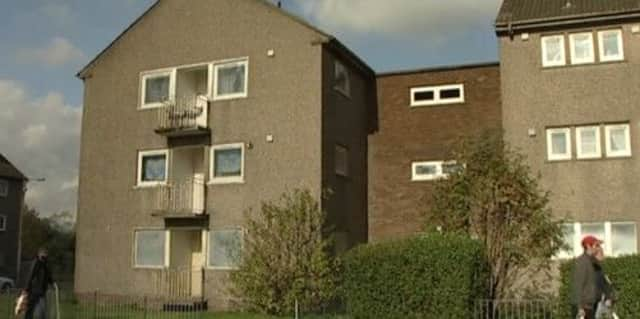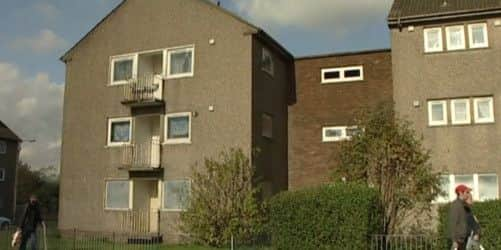Tribunal may pave way for ‘bedroom tax’ appeals


The verdict from a benefits appeal tribunal in Fife concluded that resident David Nelson should not have his housing benefit docked for allowing a
66sq ft “box room” in his house to remain unoccupied.
Advertisement
Hide AdAdvertisement
Hide Ad

The single occupancy charge, introduced by the UK government last year, cuts back housing benefit given to people who live in social housing if they have an unused room.
The ruling by QC Simon Collins suggests that many residents could successfully appeal against the charge by citing the dimensions of the room involved.
The ruling prompted Fife Council – which imposed the reduction – to call for the scheme to be scrapped last night, saying it was “unworkable”.
Lawyers acting for claimants said they would be stepping up appeals against decisions. They include cases on behalf of disabled people who use a spare room to store medical equipment, or carers who look after a disabled or sick spouse, but require a spare room.
UK government ministers said the taxpayer could not afford to continue paying the housing benefit bill and the changes would bring people in the social housing sector in line with those who rent privately.
The Fife case concerned Glenrothes resident David Nelson, 57, who lives in a three-bedroom house. His second bedroom is used by his son, who acts as his carer, but Fife Council imposed the tax because of a third 66sq ft room in the house.
Mr Collins ruled a room that size could only be used as a bedroom for a child aged up to ten and said Mr Nelson should get his money back.
The ruling will not create a legal precedent in other tribunals, but lawyers said it would have repercussions for other cases across the UK, making it more likely that other appeals would find in claimants’ favour.
Advertisement
Hide AdAdvertisement
Hide AdThe government has always declined to define a minimum bedroom size but, following a number of test cases in Fife, Mr Collins – appointed as a first-tier tribunal judge by Lord Chancellor Kenneth Clarke to oversee bedroom tax appeals – ruled that a room measuring less than
50sq ft is not a bedroom.
He further decided that a room between 50 and 70sq ft is only suitable as a bedroom for a child under ten, and that authorities must take into account the long-established uses of a room.
Fife Council – which has the right to appeal the ruling – said it would consider the implications.
Mr Nelson said last night: “The room can’t even be used by a lodger because it is too small. Everybody has the right to appeal against their own individual cases. Councils should review every case and go out and measure every room.”
Solicitor Graeme Sutherland, of Fife Law Centre, who acted on behalf of a number of appellants, said: “Other councils will be looking very closely at this to see how they should be interpreting these new benefit rules.”
David Ross, deputy leader of Fife Council, added: “What is now clear is that usable floor space and long-established use of rooms are factors that have to be taken into account when considering what can be classed as a bedroom. These hearings have just emphasised how unworkable the system is and we believe the bedroom tax should be scrapped.”
Richard Hamer, director of external affairs at Capability Scotland, said: “This judgment is another damning verdict on what is an ill-thought through and unworkable benefit policy.”
About 660,000 people – including 75,000 Scots – have had their housing benefit cut.
Advertisement
Hide AdAdvertisement
Hide AdDeputy First Minister Nicola Sturgeon said: “This ruling could be of huge significance and underlines the already existing concerns that the bedroom tax is in breach of human rights.”
But a spokeswoman for the Department for Work and Pensions said: “It is simply not affordable to pay housing benefit for people to have spare rooms.”
QC behind the ruling says new regulations are harsh
SIMON Collins QC is the lawyer whose job it is to decide on many of the controversial cases involving welfare rights in Scotland.
In 2011 he was given the title “Judge of the First-tier Tribunal, assigned to the Social Entitlement Chamber”, a role which gives him the authority to decide on appeals against decisions made by government departments against some of society’s most vulnerable people.
An Edinburgh University graduate, he was called as an advocate in 1995, before taking silk two years ago, specialising in public law and human rights.
Recent cases he has acted in include the Napier “slopping out” case and the Cadder judgment, which forced a change in the law to end the established police practice in Scotland of interviewing suspects without a solicitor being present.
At the end of last month, when he began hearing cases from housing benefit claimants against the bedroom tax, he said: “These are harsh regulations about which people may have legitimate grievance, but that’s not a matter for me.
“I have to decide what they mean and apply them. I hope you appreciate this is a new and controversial matter.”
EDDIE BARNES
Charity sees 30% rise in calls for help
Advertisement
Hide AdAdvertisement
Hide AdONE of Scotland’s leading homelessness charities has claimed that the “bedroom tax” could be behind a 30 per cent increase in calls for help over the last year.
Gordon MacRae, head of communications and policy for Shelter Scotland, told the Scottish affairs select committee that
the number of calls the organisation had received over the past year had risen to 22,000 from 17,000 for the previous 12 months.
He was giving evidence to the inquiry into what government critics have dubbed the bedroom tax and ministers have called “the spare room subsidy”, which the SNP Scottish Government has made one of the leading issues in the independence referendum.
Mr McRae told MPs that the policy, which means people in council or housing association housing cannot receive money for unused bedrooms, “should be dropped”.
He said there had been “a significant increase in calls” asking for help since the policy was introduced and that for the first time “financial issues are now over 50 per cent of the inquiries we receive”
DAVID MADDOX
Disabled man ‘told to move out of home’
A council official enforcing the bedroom tax told a man with Parkinson’s disease to move into a one-bedroom house with inflatable beds for his disabled son and pregnant daughter, MSPs heard.
Scott Wilson, 46, from Biggar, South Lanarkshire, lost his gardening business after developing Parkinson’s. He sold his home to the council and separated from his partner, who left home with his two children.
Advertisement
Hide AdAdvertisement
Hide AdHe stayed in his disability-adapted two-bedroom house under a mortgage-to-let scheme but has now been told he has to move out or have his housing benefit cut, Holyrood’s welfare reform committee heard. The committee is taking evidence on the bedroom tax.
Mr Wilson may have to move up to 20 miles away because of a shortage of one-bedroom homes in Biggar, separating him from his son, who has a heart condition, and daughter, who is expecting his first grandchild, he told the committee. “I was shocked when a council employee told me my housing benefit would be cut to the equivalent of a one-bedroom home and I would have to find the money from benefits to pay for two bedrooms,” he said.
MARK MCLAUGHLIN
Mike Dailly: Not binding but good for tenants and social landlords
This ruling is very good news both for tenants and social landlords. It means more tenants can escape the bedroom tax, and more social landlords will not have their income cut.
As a first-tier tribunal ruling, it does not create a legal precedent. It is not binding, as a judgment from the Inner House of the Court of Session would be. However, the decision is extremely important because it can now be referred to in other appeal cases.
It will have wider repercussions because of the principle that has been established – that councils as relevant authorities for housing benefit cannot just look at the number of apartments in a property. In the regulations, a bedroom is not defined. This and other rulings now make it clear that room size matters, room usage matters and room purpose matters too.
The tribunal is saying that local authorities need to consider the actual facts and circumstances in each case. You have to consider the room itself, its actual usage and proportions.
These rulings may also help disabled people – for example, where someone uses a spare room to store medical equipment or wheelchairs, or has converted a bedroom into a wet-floor shower room.
Advertisement
Hide AdAdvertisement
Hide AdOne of the major areas which is still undecided is whether a severely disabled adult will be compelled to share a bedroom with their wife or husband where it is inappropriate to do so.
We await tribunal decisions on such cases, but these decisions are a victory for common sense.
• Mike Dailly is principal solicitor, Govan Law Centre